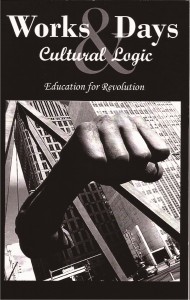Association for Teacher Education in Europe
Winter Conference 15-17 April 2014—Budapest
Social Justice and Diversity in Teacher Education
CALL FOR PAPERS
Extended NEW deadline: 20th February 2014
The main aim of the conference is to facilitate scientific dialogue around the theme of social justice and diversity in connection to teacher education in a wide sense through questions and answers offered by solid research studies. Traditional conferences often give very limited place for real dialogue and sharing around findings and problems. However, research is always a social activity too, and it needs to be discussed, shared and reflected in research communities. Scientific activities might also better contribute to the transformation and development of societies and communities if knowledge coming from research is constructed and reflected together by gathering findings, questions and possible answers. In order to promote dialogue, discussion and common knowledge construction, the sections of the conference will be organized in accordance with this principle, and the whole conference will be characterized by this atmosphere of sharing.
Confirmed keynote speakers:
Peter McLaren (USA)
Geri Smyth (Scotland)
http://ateewinter2014.blogspot.hu/
http://ateewinter2014.blogspot.hu/p/call-for-papers.html
https://www.facebook.com/pages/ATEE-Winter-Conference-2014-Budapest/1452474464975307
http://youtu.be/GooHmVrSYWw
The conference welcomes any kind of theoretical, empirical or methodological research papers related to the conference theme from different disciplines, approaches and research traditions. Participatory, collaborative or practitioner research studies are particularly welcome as well as policy analysis.
Important dates:
- EXTENDED deadline for submission of abstracts: 20th February 2014
- Notification of acceptance: 5 days after the submission
- Deadline for submission of papers and presentations: 15th March 2014 (on the form of the website that is under construction)
All participants who want to present their work at the ATEE Winter Conference are invited to submit a brief and concise abstract (max. 100 words!). Please use the registration form. Contributors can submit proposals for individual papers of one or more authors. This is the preferred type of presentation because of the special structure of the conference: parallel sessions of 60 minutes with two papers (10-10 minutes for presentations and 40 minutes for discussion). However, if a group of researcher would like to submit a symposium or a workshop related to the topic of the conference, they should contact the organizers: ateewinter2014@gmail.com
If you would like to participate in the conference without presentation, please also use the registration form.
In order to foster real dialogue in the sessions, participants have to send their full paper (between 5000 and 8000 words) or at least a shorter, draft version of their paper (2500 – 3000 words) and their presentation (if they wish to use slides) one month before the conference. The papers and presentations will be uploaded to the conference website (to a platform accessible for participants). It is very important that the participants choose and read the papers in advance, and in this way after the shorter presentations, there can be a real dialogue about the research studies in the sessions. The number of presentations is limited to 110, and each author can submit only one abstract as single (or main) author, and another one as co-author.
General guidelines for abstracts:
- All abstracts should be submitted in English, which is the official language of the conference.
- All abstracts should be submitted on the registration form on this website.
- High quality research can be presented in some words. Abstracts should be very concise, no longer than 100 words (title not included). They should indicate briefly the (theoretical and/or epistemological) approaches and applied methodology and the summarized main findings; or they should present the theoretical or methodological problems of the paper, and the offered answers, views or statements.
Criteria of evaluation:
- connection to the conference theme;
- clear and brief formulation of the focus of the paper;
- scientific quality: methods, theories clearly indicated;
- convincing summary of the findings or views;
- appropriate style and language in accordance with the topic of the paper and with the concise nature of the abstract.
Full papers, after a process of double blind review, will be published online on the Conference Proceedings. High quality papers could be sent for submission to the European Journal of Teacher Education.
29
